Shipping & Logistics
Shipping and logistics form the intricate network that connects businesses and consumers worldwide, facilitating the movement of goods and services across vast distances. From the bustling ports to the vast fleets of ships, this industry plays a vital role in driving global trade and economic growth. The shipping and logistics industry is poised for significant growth and transformation. Technological advancements, such as automation and digitalization, will continue to drive efficiency and sustainability.
"With a global network of partners and facilities, FEVOL offers comprehensive shipping and logistics solutions that connect businesses worldwide. We prioritize customer satisfaction and reliability. Our experienced team provides tailored services to meet the unique needs of your supply chain.
- Air Freight: Expedited transportation of goods by air for time-sensitive shipments, ensuring rapid delivery to destinations worldwide.
- Sea Freight: Transporting goods by sea, utilizing various vessel types to suit different cargo requirements.
- Road Transportation: Efficient overland transportation of goods within regions or countries, including truckload, LTL (less than truckload), and parcel delivery.
- Rail Freight: With its capacity to transport large volumes of cargo over long distances, rail freight offers a cost-effective and environmentally friendly alternative to road transportation.
- Intermodal Transportation: Seamlessly combining different modes of transport, such as rail, road, and air, to optimize efficiency and cost-effectiveness.
- Supply Chain Management: Optimizing the entire supply chain process, the planning, execution, and control of the flow of goods and services from the point of origin to warehousing, distribution and the point of consumption.
- Warehousing and Distribution: Providing efficient storage and distribution services to ensure timely delivery of goods to customers.
- Project Logistics: Managing complex projects, including large-scale equipment transportation, installation, and commissioning.
Our Approach
At FEVOL, we believe in a collaborative and customer-centric approach. We work closely with our clients to understand their unique needs and develop tailored solutions that meet their specific requirements. Our commitment to innovation and sustainability drives us to explore new technologies and explore emerging opportunities.
Our Commitment to Excellence
-
- Global Reach: Our extensive network of partners and facilities enables us to provide global coverage and seamless connectivity.
- Customized Solutions: We work closely with clients to understand their specific needs and develop tailored solutions that meet their unique requirements.
- Experienced Team: Our team of experts has years of experience in the shipping and logistics industry, ensuring that your shipments are handled with care and professionalism.
- On-Time Delivery: We strive to deliver your shipments on time, every time. Our advanced tracking systems and efficient processes help us meet tight deadlines.
- Transparent Communication: We keep you informed throughout the shipping process, providing regular updates and addressing any concerns promptly.
- Technology-Driven Efficiency: We leverage advanced technology and data analytics to optimize operations, improve visibility, and reduce costs.
- Sustainability: We are committed to sustainable practices and strive to minimize our environmental impact.
- Customer Satisfaction: Our focus is on providing exceptional customer service and building long-lasting relationships with our clients.
- AIR FREIGHT
- SEA FREIGHT
- ROAD TRANSPORTATION
- RAIL FREIGHT
- INTERMODAL TRANSPORTATION
- SUPPLY CHAIN MANAGEMENT
- WAREHOUSING & DISTRIBUTION
- PROJECT LOGISTICS
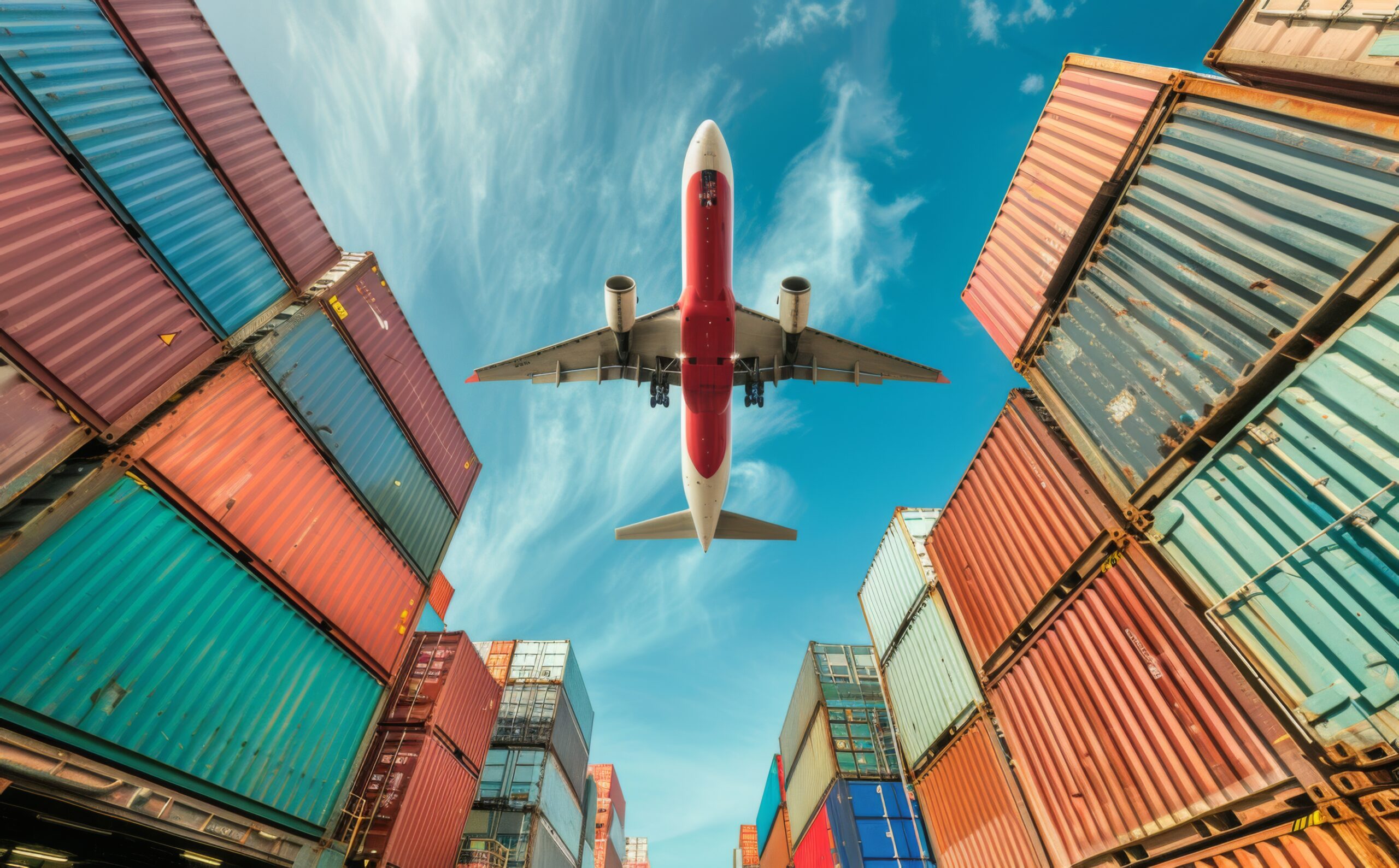
Air Freight: The Speed of Sound for Global Logistics
Air freight, renowned for its speed and efficiency, is a vital component of the global supply chain. It offers a rapid and reliable solution for transporting time-sensitive and high-value goods across vast distances.
Key Advantages of Air Freight:
- Speed: Air freight provides the fastest mode of transportation, ideal for urgent shipments and perishable goods.
- Reliability: With advanced tracking systems and efficient handling procedures, air freight ensures reliable and on-time deliveries.
- Global Reach: Air freight connects businesses worldwide, enabling seamless trade and commerce across continents.
- Versatility: Air freight can accommodate a wide range of cargo types, from small packages to bulky shipments.
Types of Air Freight:
- Full Charter: Exclusive use of an entire aircraft for a specific shipment, offering maximum control and flexibility.
- Consolidated Cargo: Combining shipments from multiple shippers into a single airfreight container to reduce costs.
- Express Air Freight: A premium service for urgent shipments, prioritizing speed and efficiency.
The Future of Air Freight:
As the global economy continues to grow and the demand for faster and more efficient transportation increases, air freight will remain a crucial component of the supply chain. Technological advancements, such as sustainable fuels and advanced cargo handling systems, will play a key role in shaping the future of air freight.
Air freight offers a fast, reliable, and versatile solution for transporting goods across the globe. By leveraging the latest technology and best practices, businesses can maximize the benefits of air freight while addressing the challenges associated with this mode of transportation.
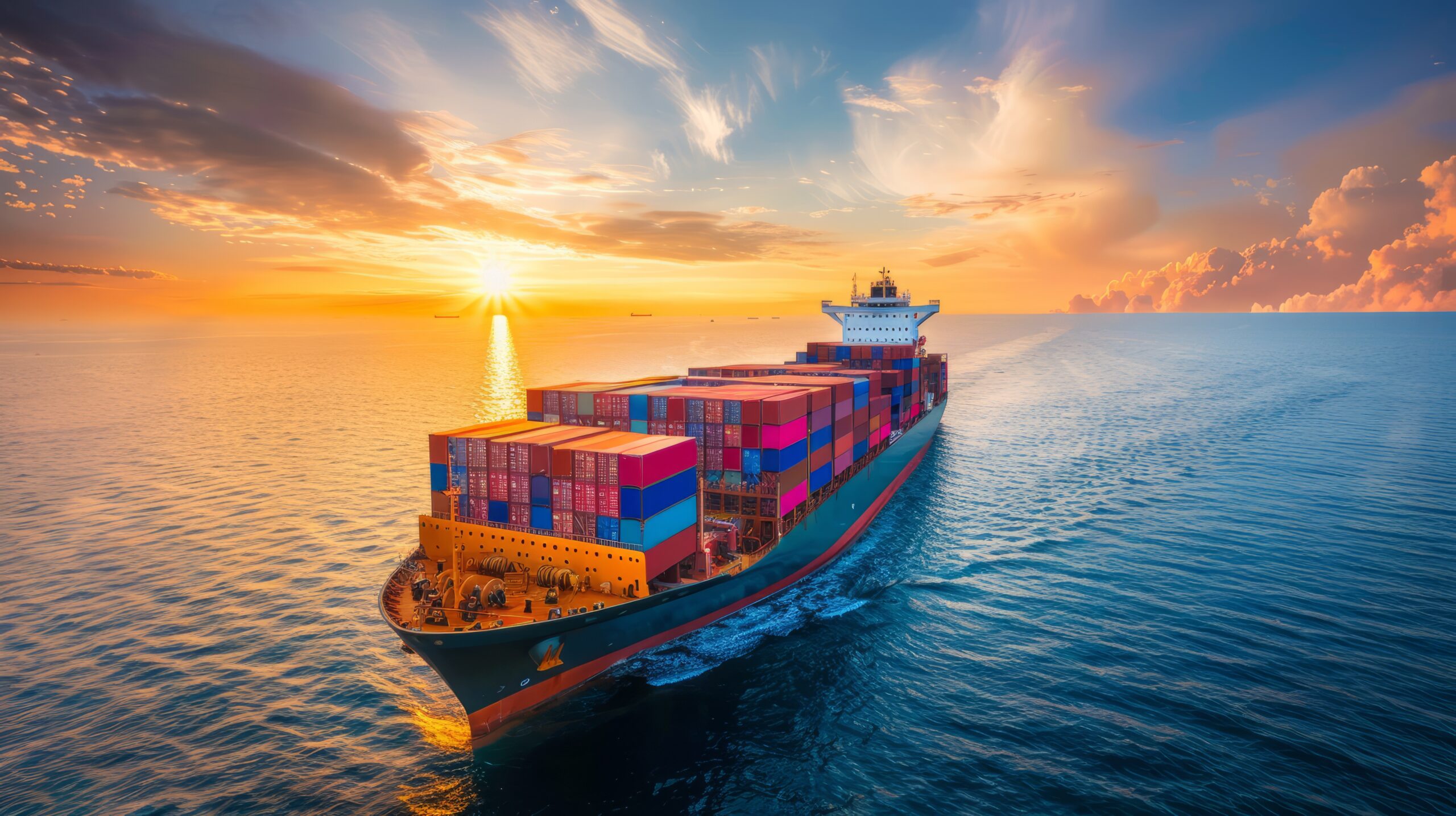
Sea Freight
Sea freight, the transportation of goods by sea, is a cornerstone of the global economy. It’s a vital mode of transportation for moving large volumes of cargo over long distances, playing a crucial role in connecting continents and facilitating international trade.
Key Advantages of Sea Freight:
- Cost-Effective: Sea freight is generally the most cost-effective mode of transportation for large shipments over long distances, making it ideal for bulk commodities.
- Capacity: Ships can transport massive quantities of cargo, making them suitable for large-scale shipments.
- Environmental Impact: Compared to air freight, sea freight has a lower carbon footprint, making it a more sustainable option for transporting goods across oceans.
- Reliability: Sea freight offers a reliable and predictable mode of transportation, with established shipping routes and schedules.
Types of Sea Freight:
- Full Container Load (FCL): A dedicated container is used to transport a single shipper’s cargo.
- Less Than Container Load (LCL): Multiple shippers’ cargo is consolidated into a single container, sharing the shipping costs.
- Bulk Cargo: Transporting large quantities of commodities, such as grains, coal, or minerals, in specialized bulk carriers.
- Break Bulk Cargo: Transporting individual pieces of cargo, such as heavy machinery or oversized equipment.

Road Transportation
Road freight, the transportation of goods by road, is a vital component of the global supply chain. It plays a crucial role in connecting businesses and consumers, facilitating the movement of goods within and between countries.
Key Advantages of Road Freight:
- Flexibility: Road freight offers flexibility in terms of routes, schedules, and delivery locations, making it suitable for a wide range of goods.
- Accessibility: Road freight can reach virtually any destination, including remote areas that may not have access to other modes of transportation.
- Speed: For shorter distances, road freight can be a faster and more efficient option compared to other modes of transport.
- Time-Sensitive Deliveries: Road freight is well-suited for time-sensitive shipments that require rapid delivery.
Types of Road Freight:
- Truckload (TL): Transporting a full truckload of goods for a single shipper.
- Less Than Truckload (LTL): Consolidating shipments from multiple shippers into a single truck to reduce costs.
- Expedited Freight: Providing expedited transportation for urgent shipments, often involving dedicated vehicles and premium services.
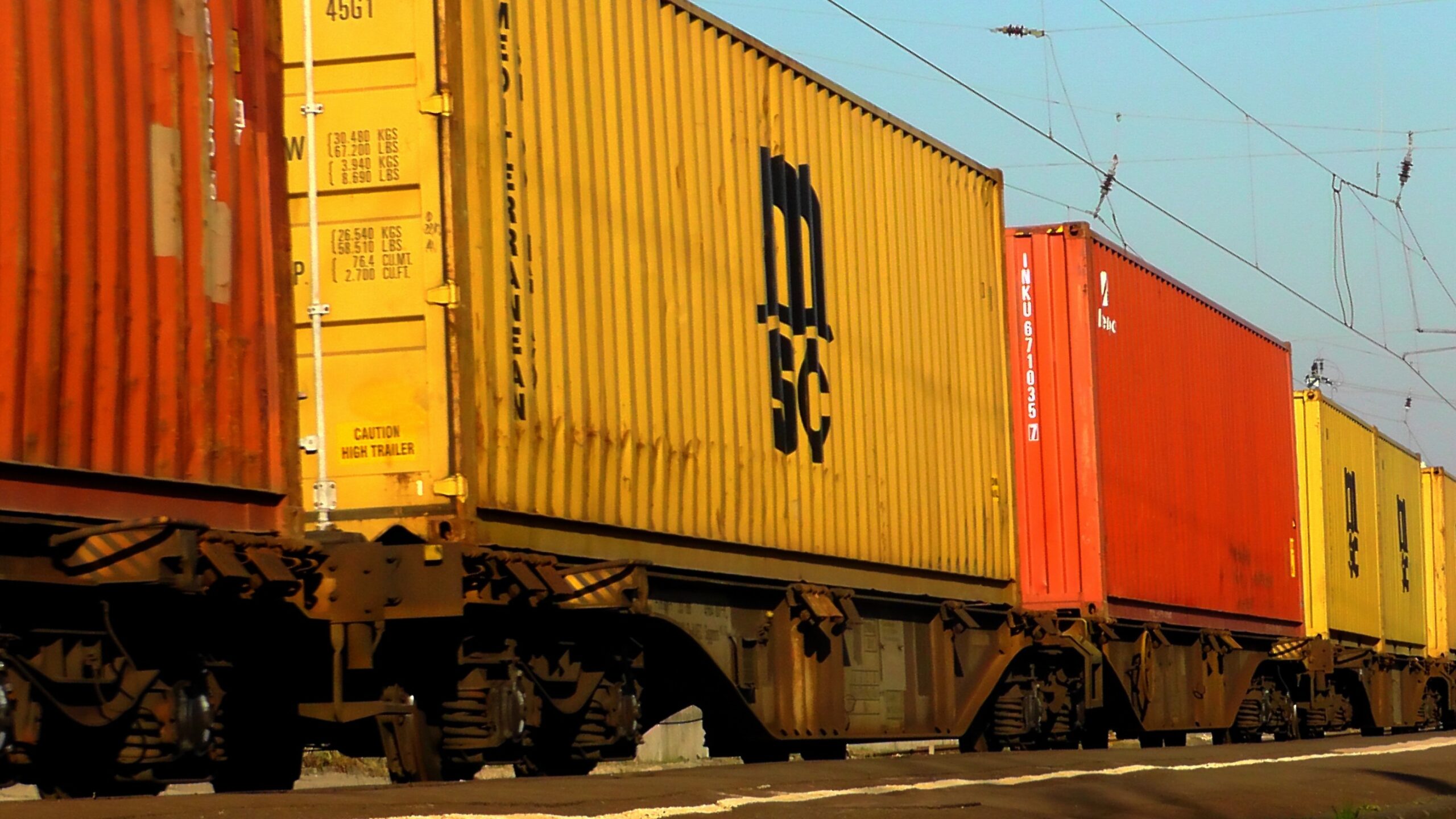
Rail Freight
Rail freight, a cornerstone of the global transportation landscape, plays a vital role in moving goods efficiently and sustainably across vast distances. With its capacity to transport large volumes of cargo over long distances, rail freight offers a cost-effective and environmentally friendly alternative to road transportation.
Key Advantages of Rail Freight:
- Efficiency: Rail freight is highly efficient, capable of transporting large quantities of goods over long distances with minimal fuel consumption.
- Sustainability: Rail transportation produces significantly lower greenhouse gas emissions compared to road transport, making it a more environmentally friendly option.
- Safety: Rail freight is generally safer than road transport, with fewer accidents and fatalities.
- Reliability: Rail freight offers a reliable and predictable mode of transportation, reducing the risk of delays and disruptions.
- Cost-Effectiveness: In many cases, rail freight is more cost-effective than road transport, especially for long-distance shipments of bulk commodities.
Types of Rail Freight:
- Intermodal Freight: Combining rail transportation with other modes of transport, such as trucking or shipping, to optimize efficiency and cost-effectiveness.
- Bulk Freight: Transporting large quantities of commodities, such as coal, grain, and minerals, in specialized rail cars.
- Container Freight: Transporting goods in standardized containers, facilitating efficient handling and transfer between different modes of transportation.

Intermodal Transportation: A Seamless Network of Mobility
Intermodal transportation, also known as multimodal transportation, is the efficient movement of goods using a combination of different modes of transport, such as rail, road, air, and sea. This integrated approach optimizes the transportation process, reduces costs, and minimizes environmental impact.
Key Components of Intermodal Transportation:
- Containerization: The use of standardized containers to facilitate the seamless transfer of goods between different modes of transport.
- Hubs and Terminals: Strategically located facilities that serve as transfer points for goods between different modes of transportation.
- Intermodal Equipment: Specialized equipment, such as railcars, trucks, and ships, designed to handle containers efficiently.
- Information Technology: Advanced technology systems to track and manage the movement of goods throughout the intermodal transportation process.
Benefits of Intermodal Transportation:
- Efficiency: Reduces handling and transfer costs, improves delivery times, and optimizes resource utilization.
- Sustainability: Reduces carbon emissions and environmental impact compared to relying solely on road transportation.
- Flexibility: Offers flexibility in route planning and the ability to adapt to changing market conditions.
- Cost-Effectiveness: Can provide cost savings by combining the advantages of different modes of transportation.
Intermodal transportation is a powerful tool for optimizing the movement of goods, reducing costs, and minimizing environmental impact. By leveraging the benefits of different modes of transport, businesses can enhance their supply chain efficiency and competitiveness.
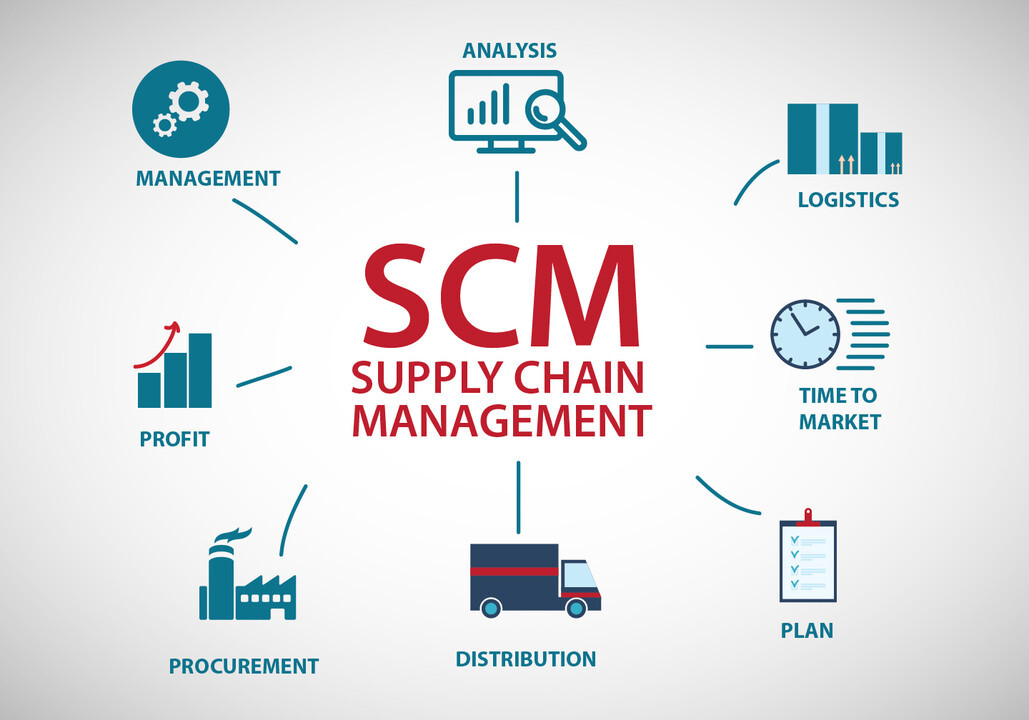
Supply Chain Management
Supply chain management (SCM) is the strategic oversight of the flow of goods and services from the point of origin to the point of consumption. It encompasses the planning, execution, control, and monitoring of all activities involved in creating value for customers.
Key Components of Supply Chain Management:
- Sourcing: Identifying and selecting suppliers who can provide the necessary goods and services at competitive prices.
- Procurement: Negotiating contracts, placing orders, and managing supplier relationships.
- Manufacturing and Production: Overseeing the production process, ensuring quality control, and optimizing efficiency.
- Inventory Management: Managing inventory levels to balance supply and demand, minimizing costs, and preventing stockouts.
- Transportation and Logistics: Coordinating the movement of goods from suppliers to customers, including transportation, warehousing, and distribution.
- Customer Service: Providing excellent customer service to ensure customer satisfaction and loyalty.
Benefits of Effective Supply Chain Management:
- Improved Efficiency: Streamlining processes, reducing waste, and optimizing resource allocation.
- Cost Reduction: Identifying cost-saving opportunities and minimizing expenses throughout the supply chain.
- Enhanced Customer Satisfaction: Delivering products and services on time and in good condition to meet customer expectations.
- Risk Management: Identifying and mitigating potential risks and disruptions in the supply chain.
- Increased Competitiveness: Gaining a competitive advantage by having a more efficient and effective supply chain.
Effective supply chain management is essential for the success of any business. By focusing on efficiency, sustainability, and customer satisfaction, businesses can build strong and resilient supply chains that drive growth and profitability.
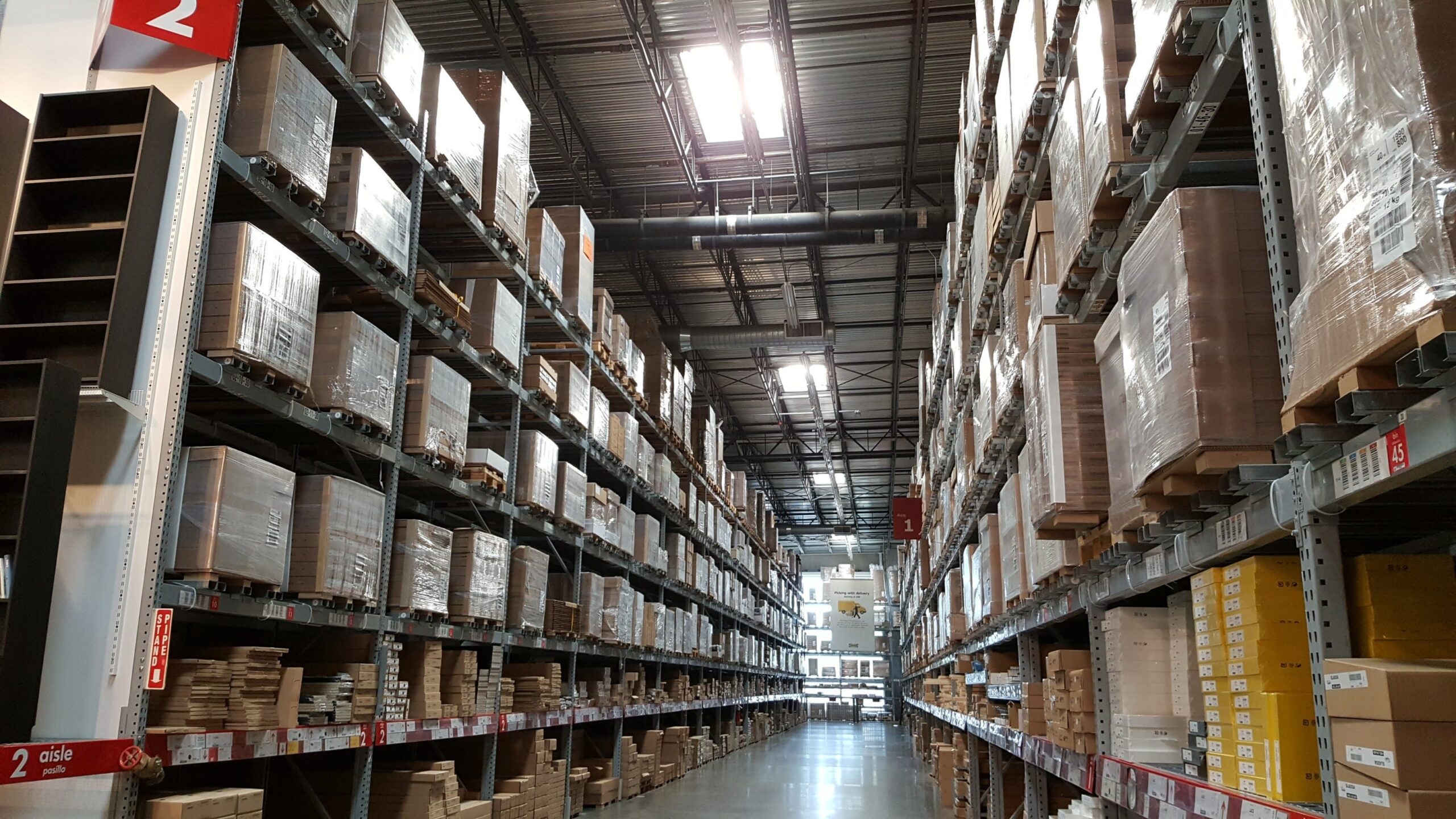
Warehousing and Distribution: The Heart of the Supply Chain
Warehousing and distribution are essential components of the supply chain, ensuring the efficient storage, handling, and delivery of goods. From inventory management to order fulfillment, these operations play a crucial role in meeting customer demands and optimizing business processes.
Key Functions of Warehousing and Distribution:
- Inventory Management: Maintaining optimal inventory levels to balance supply and demand, minimizing stockouts and excess inventory.
- Order Fulfillment: Processing and fulfilling customer orders efficiently, ensuring timely delivery and accurate shipments.
- Product Storage: Providing secure and efficient storage facilities for a variety of goods.
- Transportation Management: Coordinating the movement of goods between warehouses and distribution centers, as well as to customers.
- Value-Added Services: Offering additional services such as product assembly, packaging, and labeling.
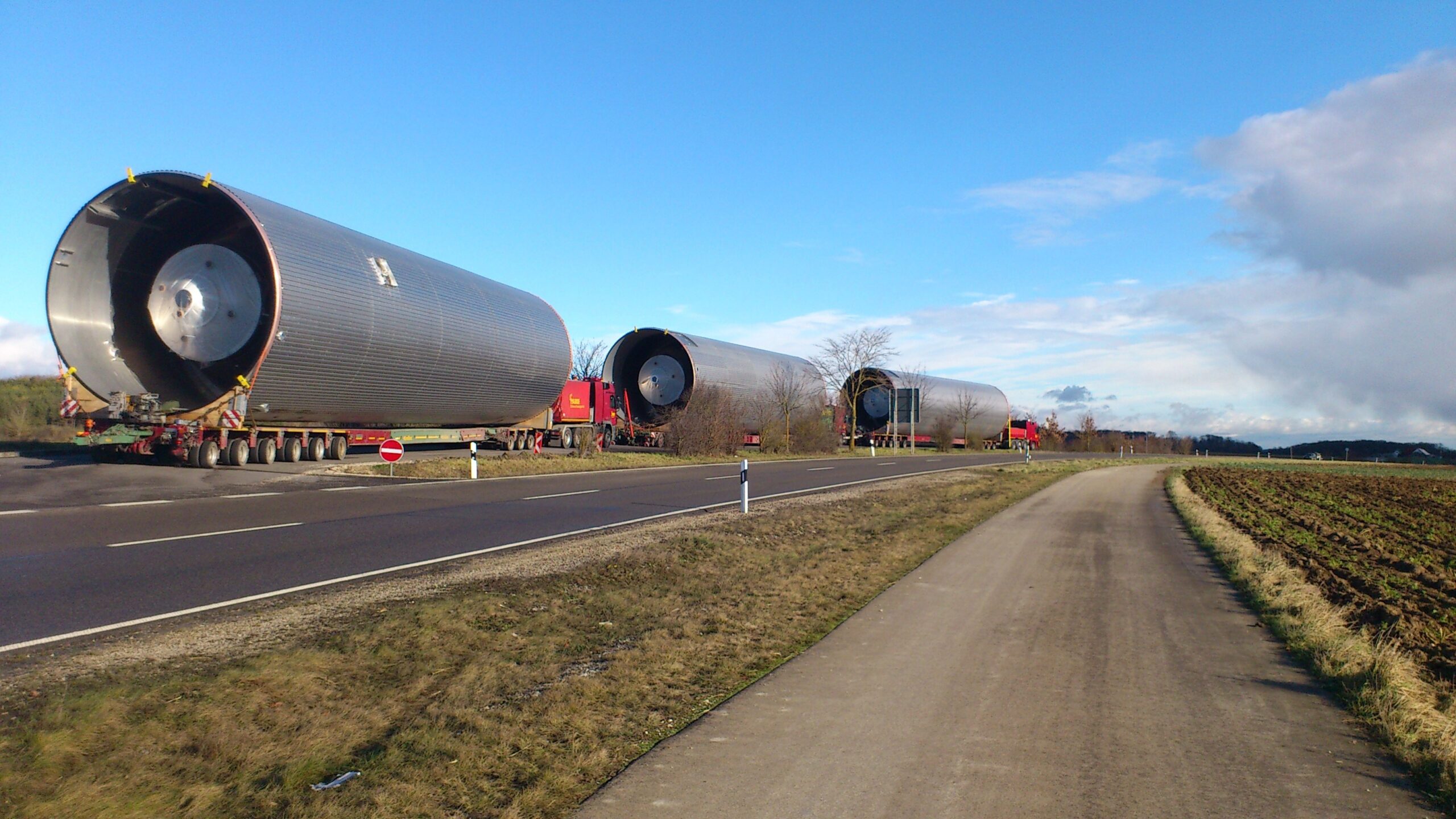
Project Logistics: Delivering Complex Projects on Time and Budget
Project logistics, a specialized field within supply chain management, focuses on the efficient and effective planning, coordination, and execution of complex projects involving the transportation and delivery of goods and equipment. From construction projects to industrial installations, project logistics ensures that all components arrive at the right place at the right time, minimizing delays and costs.
Key Components of Project Logistics:
- Project Planning: Developing a detailed project plan, including timelines, resource allocation, and risk assessment.
- Transportation Management: Coordinating the transportation of goods and equipment, including selecting appropriate modes of transport, booking shipments, and tracking progress.
- Customs Clearance: Ensuring compliance with customs regulations and procedures for international shipments.
- On-Site Logistics: Managing logistics operations at the project site, including storage, handling, and distribution of materials.
- Risk Management: Identifying and mitigating potential risks and challenges that may impact the project’s timeline or budget.
Effective project logistics is essential for the successful execution of complex projects. By leveraging advanced technologies and best practices, businesses can ensure timely delivery, reduce costs, and minimize risks.